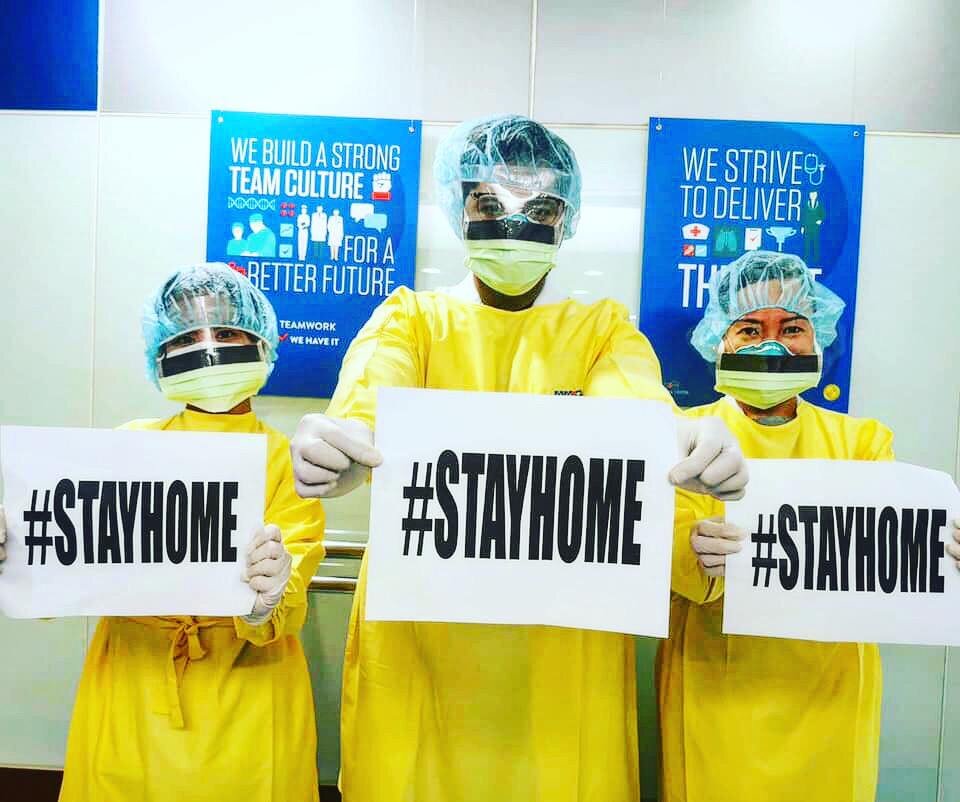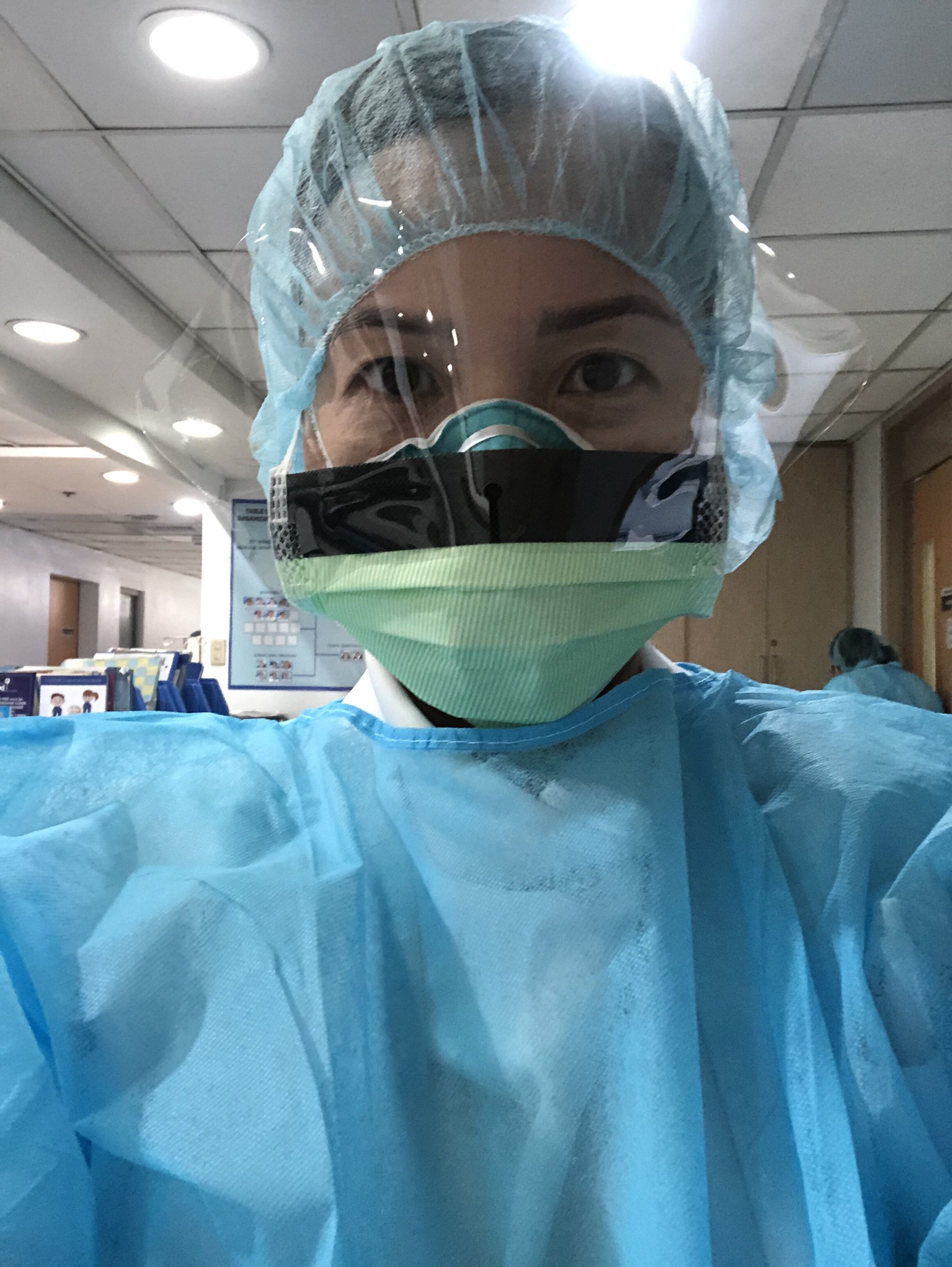Many people struggle to find work-life balance, that dance between dedicating yourself to your career and giving yourself and your family the amount of time you and they need and deserve.
In the fight against COVID-19, however, frontliners find that seeking that balance is harder than ever because their work now has direct–and potentially dire–consequences to their life.
Despite the seriousness of this, however, Dr. Abigail Zaraspe, who practices Internal Medicine-Pulmonary and Sleep Medicine at the Makati Medical Center, manages to keep things light.
“I need to learn how to cook!” she said, when talking about how the experience has made her refocus on what is truly important in life, and how everyone just really needs the basics, such as food, shelter, and clothing.
“Lysol has been my scent for weeks now,” she shares, when talking about her extensive routine of disinfecting after hospital duty.
Abbey and her colleagues at the hospital, asking everyone to stay home.
Though her words carry humour, Abbey does not underestimate the gravity of the situation. Especially because she too suspected herself of having COVID-19. “My husband and I had several arguments when I discussed possible worst-case scenarios and isolation protocols,” she said.
Abbey in her PPE.
“We had the spare room renovated (thankfully we were able to get the materials before they ordered closure of non-essential stores). True enough, I developed a cough and shortness of breath after a few days. I didn’t know if it was COVID or just an upper respiratory tract infection, coughing from prolonged wearing of n95 masks and PPEs, or anxiety. Since the patients I handle are COVID suspects and some turned out positive, the Infectious Disease doctor asked me to get tested and do self-quarantine. Thankfully the test came out negative after 11 gruelling days.”
During the self-quarantine, and for almost a month now, Abbey had to stay away from her 6-year-old son and 10-year-old daughter, as well as her 68-year-old mother who lives with them. “It is heartbreaking to see them check on you in your room or ask when they can hold or hug you again, if they ask if it is safe if I play with them, or to say stop when they run to you when you get home after rounding in the COVID zones.”
It is the very definition of work-life imbalance, and yet it must be done. A full understanding of what it means to be a medical practitioner, Abbey–like her fellow doctors–are dedicated to the fight against the virus even if the road ahead is yet unknown.
“Much is yet to be discovered,” she says. “This is a novel virus that spreads easily from human to human. Infected persons with no symptoms are noted to spread the virus and infect others, which may be fatal to susceptible populations. Anybody can get infected. There is no specific antiviral or vaccine for this. There are a lot of changes in the protocols and guidelines from early this year. It’s very dynamic.”
What’s important, perhaps, is to stay hopeful and optimistic. Carving back a piece of work-life balance for herself, Abbey recognises the importance of optimism and to keep laughing somehow. “Humor gets me through,” she says with a smile.
Part of her hope and optimism is that the experience and sacrifices of COVID-19 will ultimately better the healthcare systems of the Philippines and better the general regard for millions of essential workers in the country.
“The good thing though is we see a lot of people pitching in,” Abbey says. “Institutions here and around the world get together to share experiences and knowledge of the disease… Seeing that the hospital is doing it’s best to protect and support its staff, feeling the support of my family, friends, acquaintances, and even strangers, boosts my spirit and strengthens my resolve. You can see and feel the bayanihan in the hospital. Most of all, seeing patients improve and go home recovered makes the sacrifices worth it.”



Leave a Reply